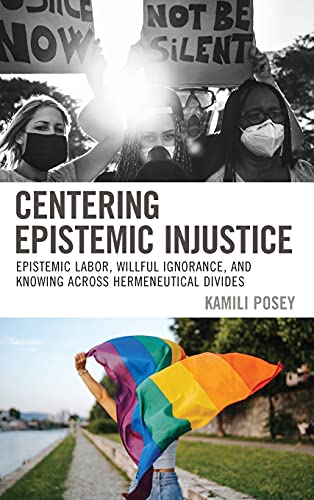

Most ebook files are in PDF format, so you can easily read them using various software such as Foxit Reader or directly on the Google Chrome browser.
Some ebook files are released by publishers in other formats such as .awz, .mobi, .epub, .fb2, etc. You may need to install specific software to read these formats on mobile/PC, such as Calibre.
Please read the tutorial at this link: https://ebookbell.com/faq
We offer FREE conversion to the popular formats you request; however, this may take some time. Therefore, right after payment, please email us, and we will try to provide the service as quickly as possible.
For some exceptional file formats or broken links (if any), please refrain from opening any disputes. Instead, email us first, and we will try to assist within a maximum of 6 hours.
EbookBell Team

5.0
88 reviewsIn Centering Epistemic Injustice: Epistemic Labor, Willful Ignorance, and Knowing Across Hermeneutical Divides, Kamili Posey asks what it means for accounts of epistemic injustice to take seriously the lives and perspectives of socially marginalized knowers. The first part of this book takes up the predominant account of testimonial injustice offered by Miranda Fricker, arguing that testimonial injustice is not merely about the epistemic harms perpetrated by dominant knowers against marginalized knowers, but also about the strategies that marginalized knowers use to circumvent those harms. Such strategies expand current conceptions of epistemic injustice by centering how marginalized knowers engage and resist in hostile epistemic environments. The second part of the book examines Fricker’s concept of hermeneutical injustice, rooted in hermeneutical marginalization. Thinking alongside critics of hermeneutical injustice, Centering Epistemic Injustice explores the relationship between dominant knowing and marginalized knowing and asks if social power—including the power to shape collective resources and ways of meaning-making—makes it impossible for dominant knowers to know and “hear well” across hermeneutical divides. Finally, the book asks whether hermeneutical divides are real divides in understanding and how dominant knowers might come to be better knowers in the pursuit of a more thoroughgoing epistemic justice.